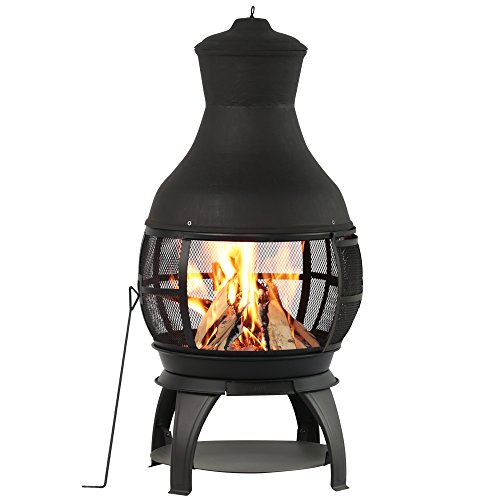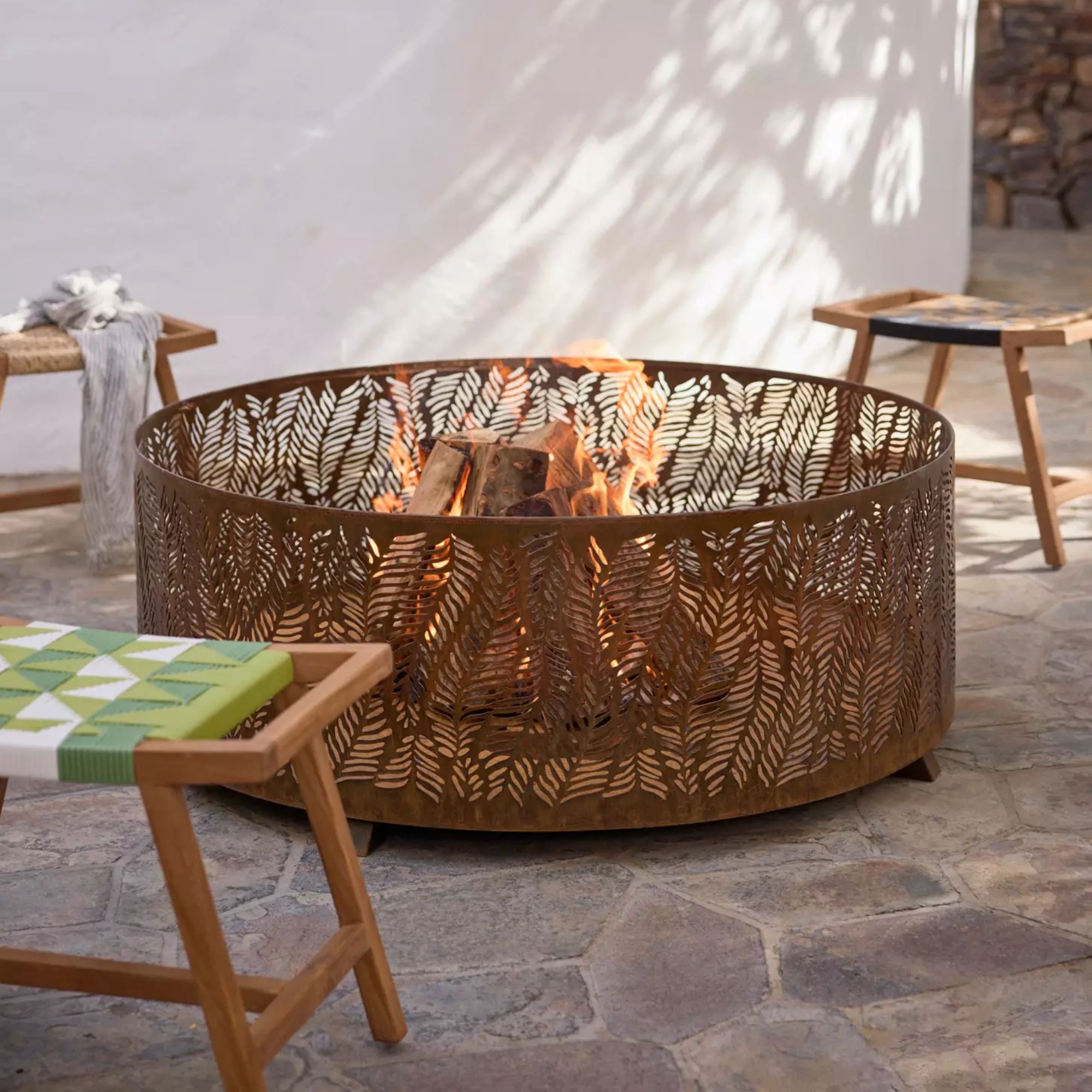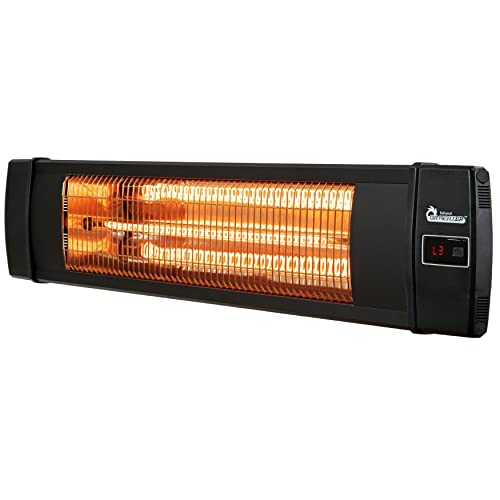Fire pits vs patio heaters – an expert designer reveals which is best for your space
With winter drawing in, it's smart to weigh up fire pits vs patio heaters
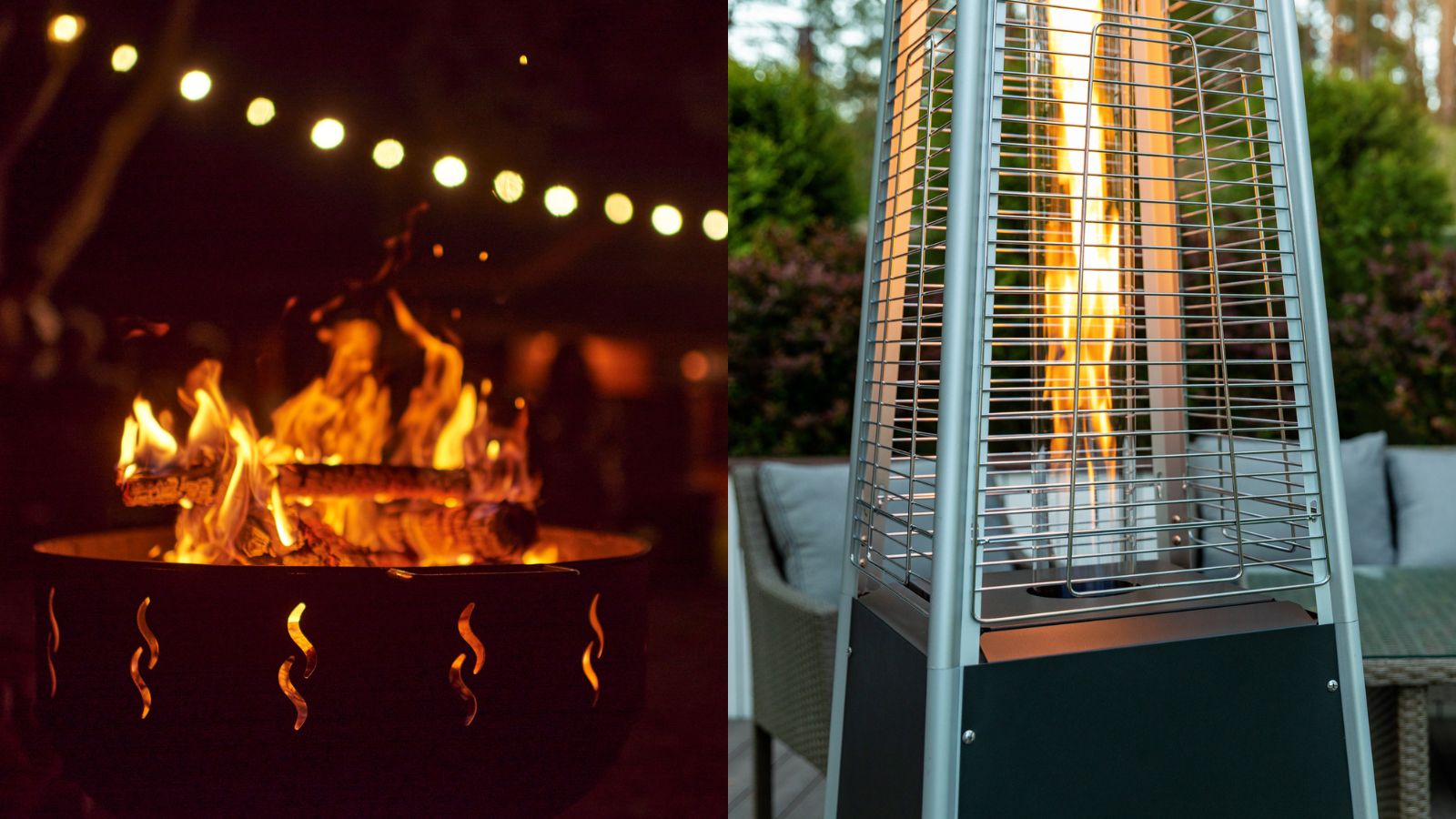

Fire pits are just the thing as we head into fall and winter. They offer a cozy, festive place for the family to gather on cold nights.
However, even the best fire pits aren't perfect. They can be inefficient, smoky, and messy. The result is that many of us are turning to patio heaters as a faster and cleaner way to heat our patios.
Unfortunately, there are big drawbacks to patio heaters that must be considered before you buy one. Patio heaters are better at providing heat, but fire pits look better and provide a better ambience. I spoke to a fire pit expert and a landscape designer to help you understand the benefits and pitfalls of these products.
What are the benefits of a fire pit?

Fire pits are great because they create a social space. Patio heaters are utilitarian and are only designed to heat a space. A fire pit, however, is designed to bring everyone together. By their nature, everyone has to cluster together around the fire, which fosters conversation.
Fire pit expert Metturan Ketheswaran says: 'Fire from a pit brings everybody together in one circle with the appeal of a cozy and enticing setting. The flickering flames create a setting for relaxation and mesmerization, ideal for unwinding during an evening after a long, hard day or for socializing.'
Best of all, you can cook on a firepit. Landscape designer Russell Wightman points out: 'Fire pits can become interactive social pieces by cooking s'mores. I even had a client who cooked grilled cheese sandwiches with special sandwich-making tins on metal sticks.'
On top of that, fire pits can be stylish. I'm yet to see a good-looking patio heater, but there's a huge range of different fire pit designs out there that can transform your space. There are simple, square contemporary designs, and elegant, complicated designs for a more traditional space.
A good fire pit will enhance your style; a patio heater can only detract from it.
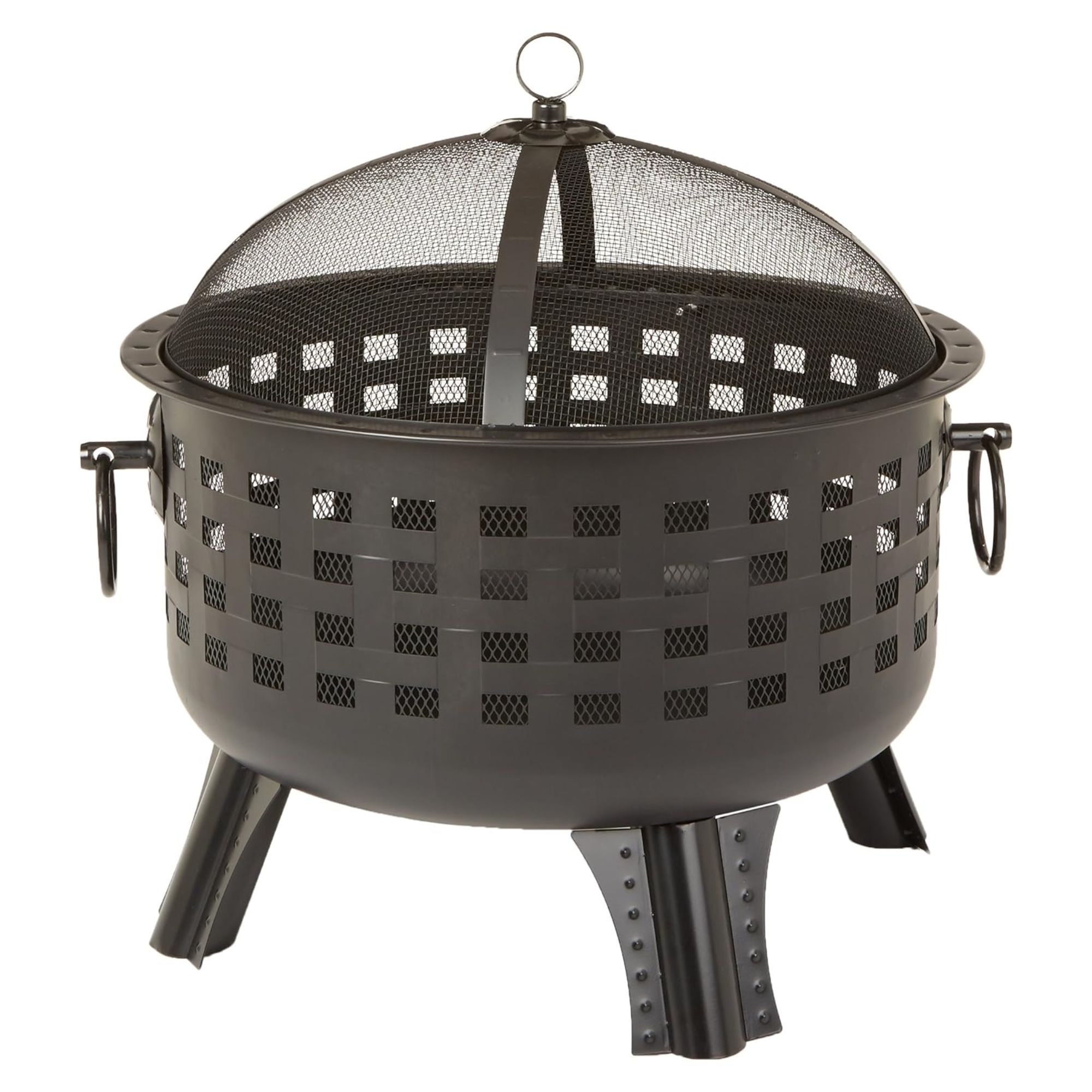
I've used this fire pit before, and it's surprisingly good for such a simple design. I was happy to see it comes with a spark screen to reduce the risk of fire.
Metturan is the owner of the Great Fire Company, a company specializing in fire pits, fireplaces, wood stoves, and chimneys.

Russell is the founder and principal designer at Russell Wightman Design, taking the lead on a range of landscaping design projects around the Los Angeles area
What are the drawbacks of a fire pit?
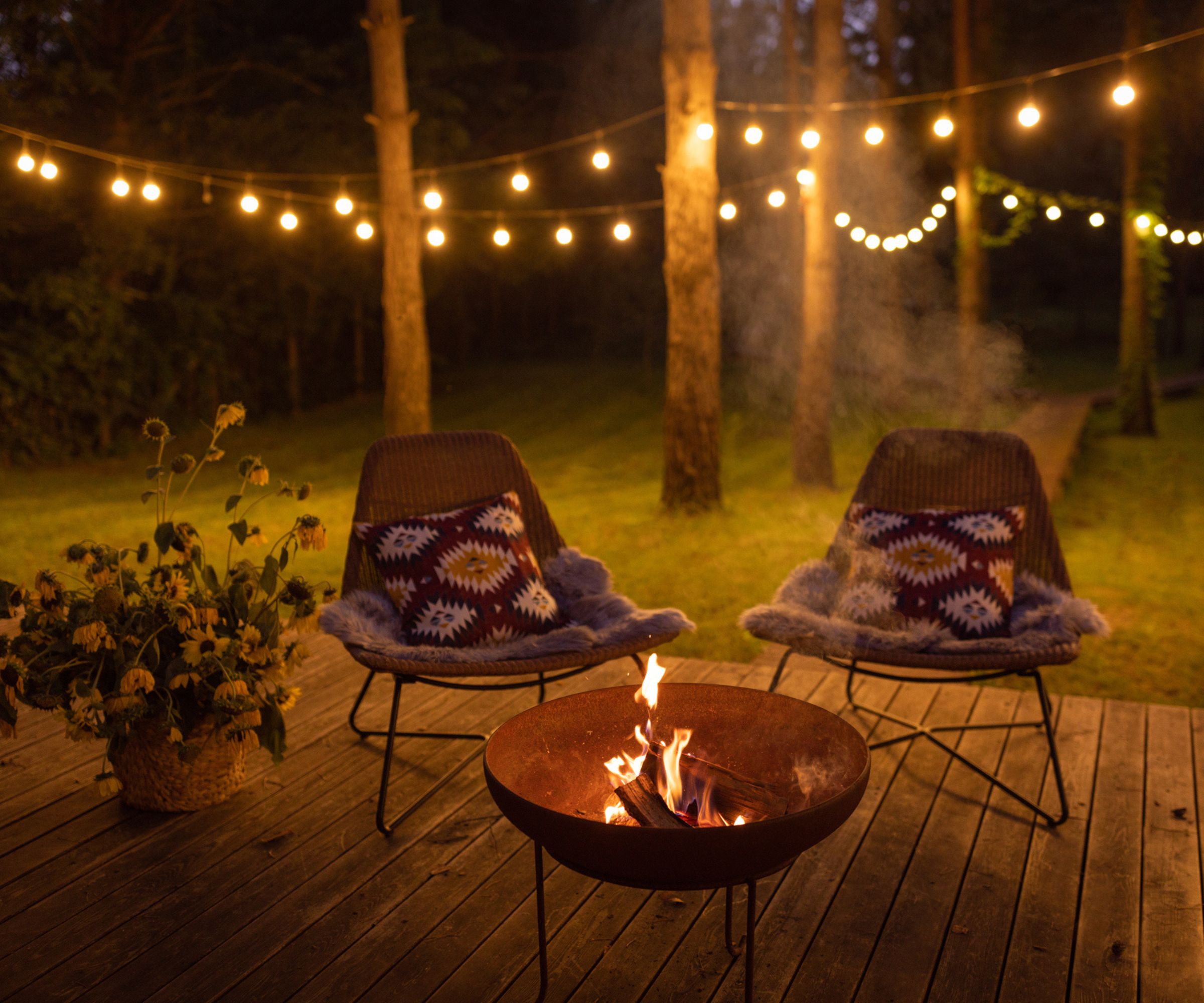
However, fire pits have a few drawbacks. The big one, if you use a wood fire pit, is that they're very smoky. If your wood isn't cured properly, or it's a windy day, your guests will be covered in smoke, which can be very uncomfortable. Even if smoke doesn't blow onto them, the smell of it is in the air.
Some people love the smell of smoke, but it's not for everyone - some people report that it makes them feel sick. Metturan Ketheswaran says: 'Fire pits emit smoke, which could be an issue for those with respiratory sensitivities or air quality concerns.'
While fire pits are great for making a centerpiece in a space, they can dominate it. You need a large fire to heat a big patio, and this can totally overwhelm your space. Metturan adds: 'Fire pits take up considerable space, which may not be apt for small-sized patios or yards.'
They aren't always the best option for heating a seating area, too. Because they're so low to the ground, you might find that your guests' shins are uncomfortably hot while their heads and shoulders are freezing.
Wood fire pits are more dangerous than patio heaters. Even patio heaters that heat with fire have grills that can help protect against open flames. A wood fire pit, however, usually has its fire open to the air and, unlike a gas fire pit or patio heater, you can't just turn it off if anything goes wrong. Russell Wightman adds that 'wood burning flames can be unpredictable and can send sparks and embers flying which creates a fire hazard'.
Like patio heaters, there are several environmental drawbacks to fire pits. Gas fire pits, like patio heaters, are incredibly bad for the environment. They're inefficient because they're attempting to heat a huge area, so they go through a lot of propane very quickly. Wood fire pits rely on lumber and, if it isn't harvested sustainably, this can also be very bad for the environment.
Unlike patio heaters, fire pits need a lot of input, especially metal fire pits which can quickly rust and need to be maintained. On top of that, Russell Wightman points out that 'wood fire pits are notoriously messy with ash and soot' and this can make a mess in the rest of your yard.
You also need to consider the law. Because of the risk of wildfires, many municipalities have local laws that restrict or even ban wood-burning fire pits. In most counties, there are laws about the size and materials in a fire, so you may not be able to use a fire pit at all.
What are the benefits of a patio heater?
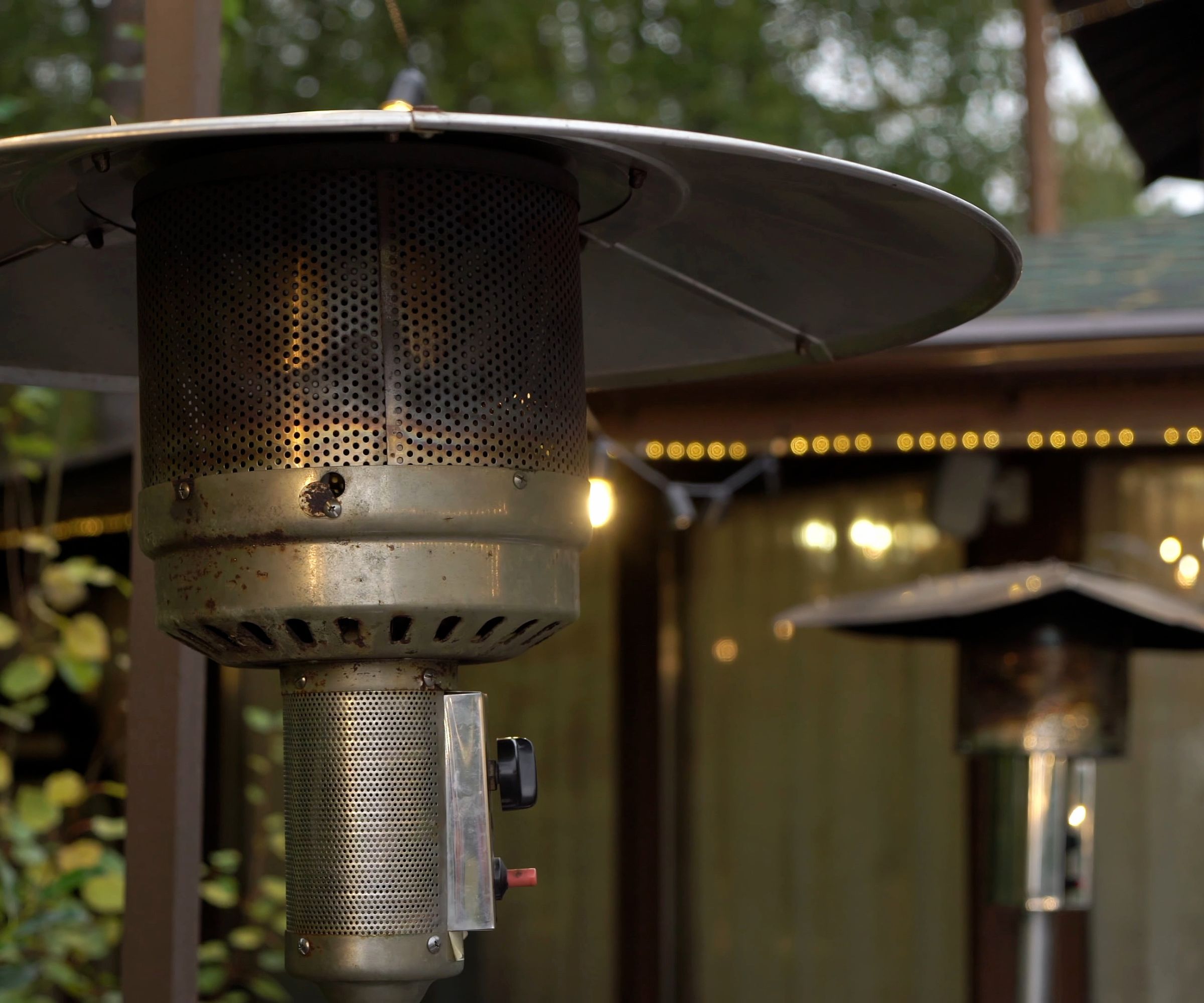
The main benefit of a patio heater is that it offers effective heating. Patio heaters are much more efficient than fire pits because the heat source is mounted in the air. This casts heat over a much larger area than a low-down fire pit, so it's a better way to heat a big patio.
On top of that, patio heaters can be controlled. A wood fire pit needs all the fuss of lighting and stoking and, once it's going, you can't control it except to add more wood, leave it, or extinguish it. Patio heaters are much easier to operate. Metturan Ketheswaran says: 'Patio heaters have the ability to provide instantaneous heat that you can easily adjust, thus extending the usable period of your outdoor space during the year.'
There is a lot less maintenance with a patio heater. You won't need to clean out spent ashes or clear away any soot. Plus, there's no smoke. Operating a patio heater is pretty straightforward, with much less effort in maintenance compared to a fire pit. Metturan adds: 'They will not produce smoke, so they are appropriate for spaces where air quality is a high concern.'
Patio heaters are more compact and discreet than fire pits. A fire pit needs space on a patio, but the various types of patio heaters take up much less floor room. Russell Wightman says: 'I like mounted electric heaters and often direct my clients in this direction. I like mounted heaters because they add less visual clutter to a space. They can be tucked away under a joist of a patio cover or flush to the ceiling of a solid roof patio.'
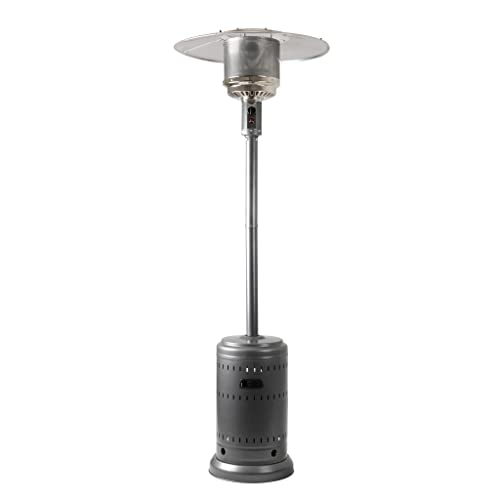
If all you need is heat, try this patio heater from Amazon Basics. Thousands of five-star reviews prove that it's an inexpensive option for heating up a patio.
What are the drawbacks of a patio heater?
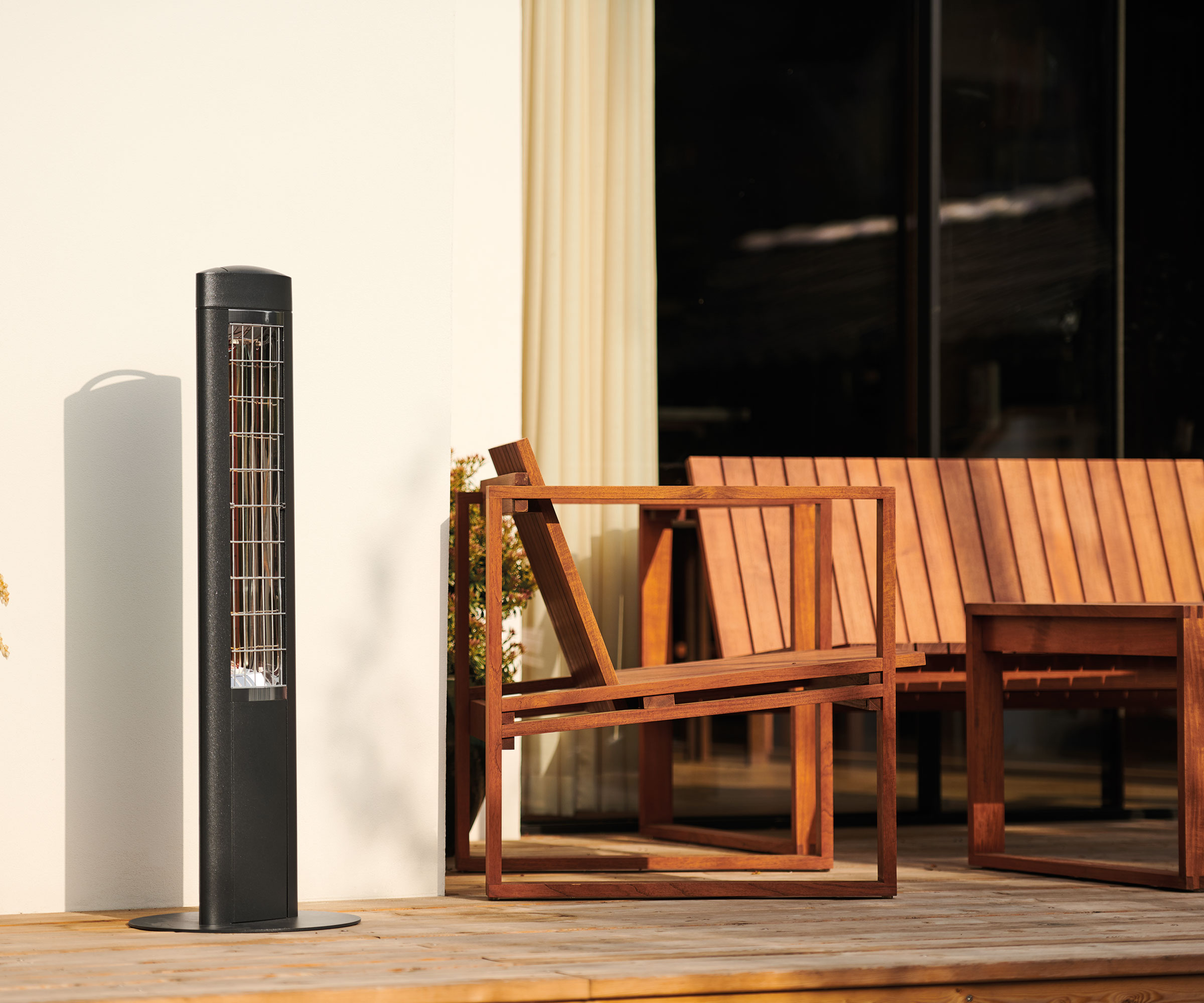
Patio heaters don't have the same social function as a fire pit. No one is gathering around a patio heater with a mug of cocoa on a cozy fall night. If you just want heat outside, a patio heater is a great choice, but it isn't as pro-social. Metturan Ketheswaran sums it up neatly: 'A patio heater is efficient and easy, but it lacks the soul-stirring charm of a live fire.'
Patio heaters do little to add to the style of space and, in some cases, they actively harm it. Russell Wightman says: 'Mobile heaters visually and physically clutter the garden and need to be stored between uses. This makes a maintenance task that my clients don't want to deal with and gardeners do not know what to do with them. Unless there is a dedicated place to store them, mobile heaters just hang out on the patio, making visual and physical clutter that I do not enjoy.'
However, the worst part of a patio heater - particularly a gas patio heater - is that they are terrible for the environment. I once worked under an editor who thought they were so bad for the planet that he refused to even cover them.
According to the New York Times, 40 hours of heat from a propane patio heater produces as much carbon dioxide as driving a car 238 miles. That's before you factor in how this gas is manufactured. Russell Wightman points out that 'natural gas is harvested somewhere else and shipped into our cities. The carbon footprint and the ecological effects of harvesting natural gas can be devastating'. Even if you use an electric heater, if your electricity comes from fossil fuels, you're burning through a lot of fossil fuels.
FAQs
Can a fire pit add to my property price?
It's also smart to consider a permanent fire pit. A permanent pit can help to add to your house price in a way that patio heaters can't match.
Whatever you do, make sure you follow local laws about fires, and make sure you stay safe. Don't use a fire pit under a gazebo, and make sure you're well away from fences or other fire hazards.
Sign up to the Homes & Gardens newsletter
Design expertise in your inbox – from inspiring decorating ideas and beautiful celebrity homes to practical gardening advice and shopping round-ups.

As a gardens and lifestyle contributor, Alex makes sure readers find the right information to help them make the best purchase. Alex got his start in reviewing at the iconic Good Housekeeping Institute, testing a wide range of household products and appliances. He then moved to BBC Gardeners’ World Magazine, assessing gardening tools, machinery, and wildlife products.
-
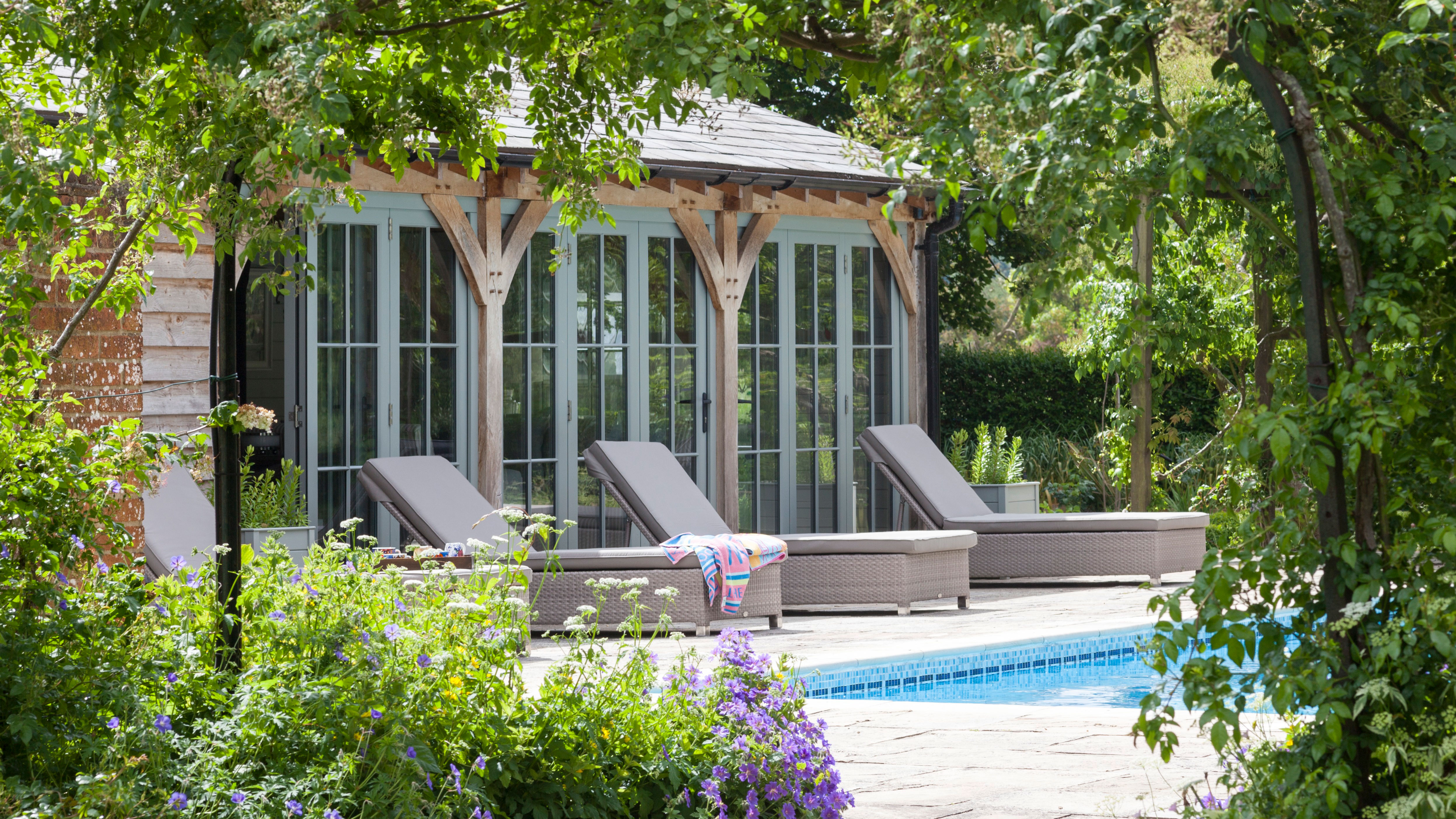 Lidl's brand-new garden lounge chair is so good they've had to limit it to only 2 per a customer – it is low in stock, so you'll need to act fast
Lidl's brand-new garden lounge chair is so good they've had to limit it to only 2 per a customer – it is low in stock, so you'll need to act fastHampton's style is hiding in the Lidl aisles thanks to this budget-friendly recliner
By Jennifer Ebert
-
 Kylie Jenner, Tommy Hilfiger, and Lenny Kravitz transform their homes with prints – the London Original Print Fair Director has a method that makes their look 'accessible and affordable' in your home
Kylie Jenner, Tommy Hilfiger, and Lenny Kravitz transform their homes with prints – the London Original Print Fair Director has a method that makes their look 'accessible and affordable' in your homeCelebrities from the Kardashians to Lenny Kravitz decorate their homes with prints by famous artists, and it's easier to recreate than you might expect
By Sophie Edwards
